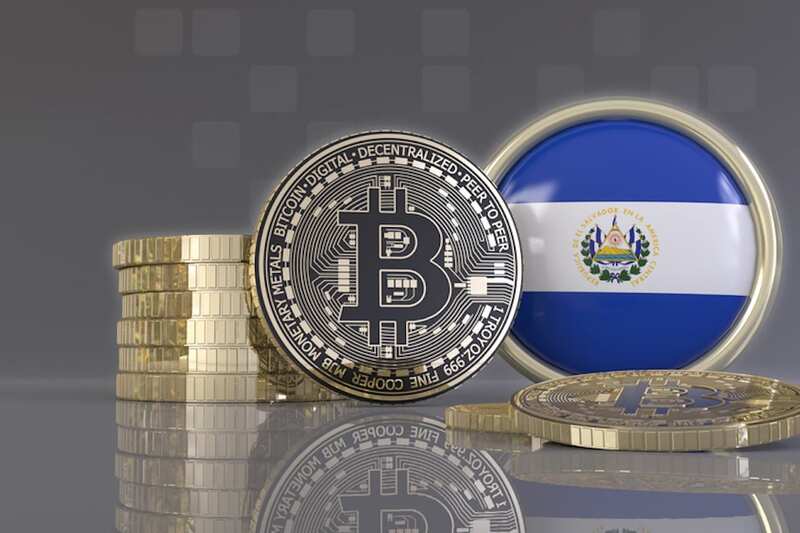
El Salvador government officials said that the bitcoin (BTC) they plan to give away in forthcoming airdrops is for spending, not for converting into USD via crypto ATMs.
Per ElSlavador.com, the website of the El Diario de Hoy newspaper, the government, spurred on by the bullishly pro-crypto President Nayib Bukele, is forging ahead with a USD 120m plan to distribute USD 30 worth of BTC to every Salvadorian who downloads a new state-issued crypto wallet.
The smartphone-based app, Chivo, is likely to be made available in or before September this year, and the government hopes a minimum of 2.5m citizens will start using it – although it intends to eventually reach the 4m mark.
The Minister of Finance, Alejandro Zelaya, was quoted as stating, however, that the funds would be provided “to encourage the use of bitcoin,” rather than allow citizens to instantly cash out into USD using ATMs.
Zelaya did not clarify how exactly the government would achieve this, but the government is keen to encourage merchants all over the country to try bitcoin-powered settlements as soon as possible – and is confident that the USD 120m plan, which will be funded using Treasury resources, will do just that.
Naysayers have reacted with scorn to Bukele’s plans, however, with everyone from economists to power experts and engineers quoted in the largely skeptical local media as expressing doubt.
The same media outlet quoted Luis Membreño, a notable economic analyst and businessman, as stating:
“Bitcoin was created to go against the established order. It is for those who do not have financial control. I believe that it is a very big assumption to think that the USD 150m dollar trust [that the government has put aside as a reserve fund] will be enough for bitcoin adoption on September 7. It will be very difficult for the system to work well.”
Bukele, however, took to Twitter to do some “myth-busting” on reports surrounding the Chivo wallet app the government is now working on.
He claimed that the wallet would be “totally” compatible with other wallet providers and would be “completely free,” allowing “commission-free remittances,” and cost-free “USD-BTC and BTC-USD conversion.”
In a lengthy thread, he added that 200 bricks-and-mortar Chivo outlets would become operational throughout El Salvador, where citizens could convert their BTC into USD, or trade fiat for bitcoin.
He also hit back against his critics, writing:
“For those who have been asking where the government will get the money to finance the ATMs, the workers at the Chivo outlets and so on, I never saw these people ask how we distribute USD, for which we pay 100% of their printed value, plus transport, insurance, custody, transportation, and security to vaults. There is also vault administration, as well as distribution of that money to banks and so on. Yes, all costs are absorbed by the government. The same will be done with bitcoin, only on a much cheaper basis.”
Meanwhile, crypto industry insiders have been having their say on El Salvador’s move into the crypto world.
In an analysis piece for the crypto exchange OKEx’s Academy, Alex Gladstein, the chief strategy officer at the Human Rights Foundation, was quoted as opining:
“The United States government, through the Federal Reserve, is controlling the policy of the dollar. So, it’s more likely that a country that doesn’t control its own currency would consider adding BTC as an alternative. I think that is pretty simple.”
Nic Carter, a partner at Castle Island Venture, was quoted as stating that El Salvador “loses nothing by entering into a BTC standard.”
“[The government] has the benefit of a single party in power with an enormously popular mandate. This means they can afford to undertake bold experiments without risking a loss of political support,” he said.
Others, meanwhile, claimed Bukele’s geothermal BTC mining plans were unfeasible. The renowned Salvadorian geophysicist José Antonio Rodríguez wrote that he thought the idea of “using geothermal to attract investment from bitcoin miners” was “far-fetched.” He added that politicians in general “do not understand, nor do they take the time to understand” geothermal energy – instead ordering engineers to carry out their wishes.
Rodríguez claimed that he was not “optimistic” about the plans, and remarked:
“In China, bitcoin miners were paying around USD 30 per MWh. I don’t think they will move to El Salvador to pay USD 60.”
(Photo : Gallery)

